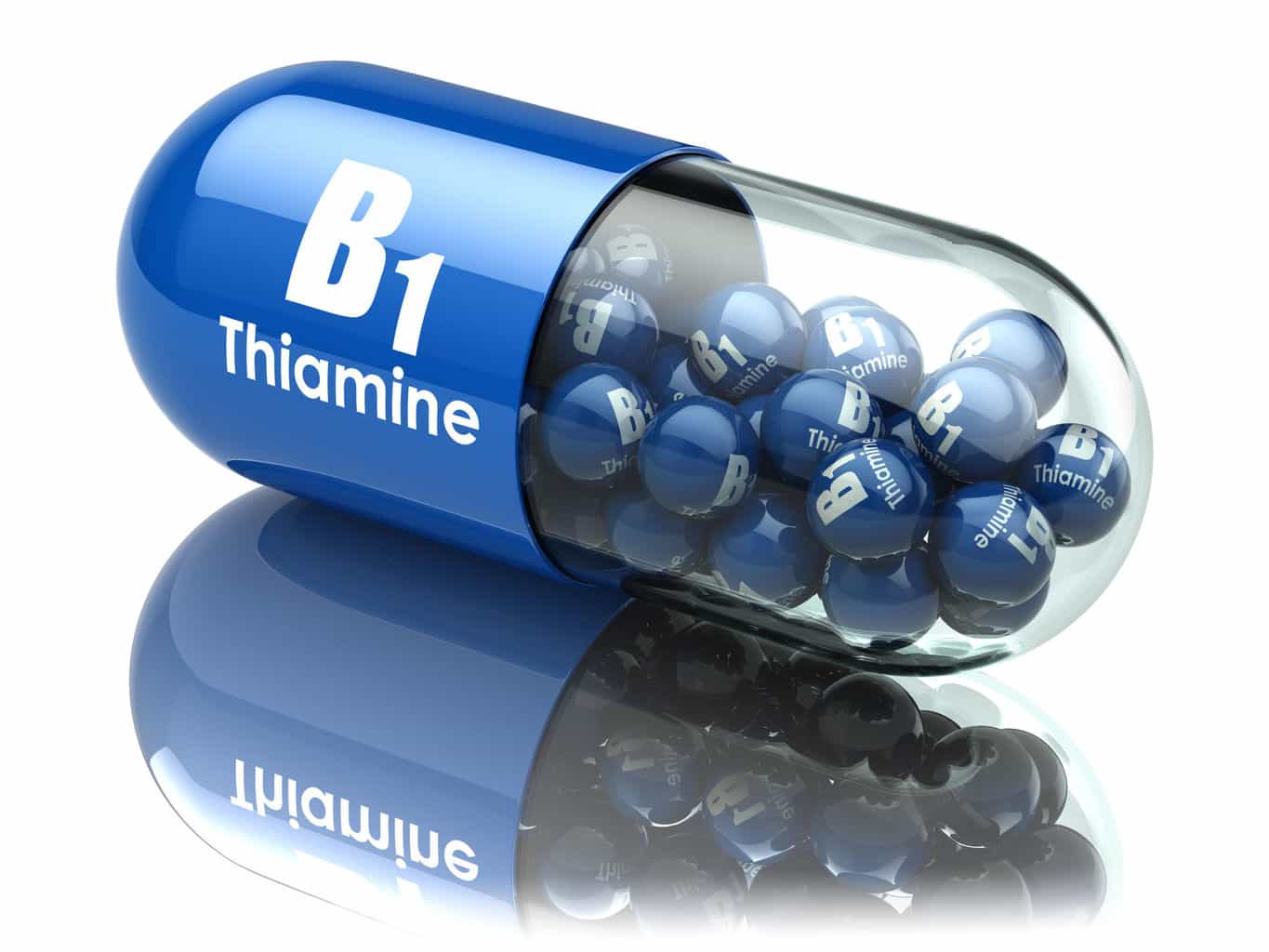
[cmamad id=”5734″ align=”center” tabid=”display-desktop” mobid=”display-desktop” stg=””]
One of my favorite vitamins is thiamine, vitamin B1.
Why?
It’s one of my favorites because thiamine supplementation can help increase the level of carbon dioxide in the cells.
And carbon dioxide is a huge health booster and promoter.

Just to back up for a moment, high carbon dioxide levels in the body enable high oxygen levels reaching the cells.
So you want to have high carbon dioxide levels in your body.
Thiamine can help with this, and higher altitudes demonstrate why quite well.
Higher altitudes have thinner air, which means that it’s harder to get oxygen.
But doctors will prescribe acetazolamide for altitude sickness.
Acetazolamide increases the amount of carbon dioxide in the blood, allowing more oxygen to get to the cells.
This study shows that thiamine is equally effective:
The compounds including thiamine displayed relatively strong actions on hCA II, in the same range as the clinically used sulfonamidesethoxzolamide, zonisamide and acetazolamide.
So if you want to increase your oxygen levels, you want to increase your carbon dioxide levels.
Thiamine can build up in your tissues in high enough quantities to help raise carbon dioxide.
Taken over a couple of weeks, you could end up with much higher carbon dioxide levels in your body.
Which then means that much more oxygen is reaching your cells.
To do that, you need to have at least 1000 to 2000 mg of thiamine per day, and it will build up.
[cmamad id=”5735″ align=”center” tabid=”display-desktop” mobid=”display-desktop” stg=””]
But there’s another side to thiamine, vitamin B1 as well.
Vitamin B1 benefits include a love/hate relationship with cancer.
Thiamine in smaller quantities is linked to promoting cancer — but in larger quantities, it may suppress cancer tumors.

A significant association has been demonstrated between cancer and low levels of thiamine in the serum.
It is very common for people with cancer to have low thiamine levels.
Supplementing thiamine corrects the problem and also may increase cancer growth.
The higher levels mean that cancer has the thiamine that it needs to grow.
But in larger doses of several grams per day, thiamine may suppress the growth of cancer by about 35%.
A very high dose of thiamine produces a growth-inhibitory effect in cancer. Therefore, further investigations of thiamine in cancer are needed to clarify this relationship.
Doses of thiamine needed to inhibit cancer may be several grams or more per day.
A metabolic control analysis demonstrated a high stimulatory effect on tumor growth of 164% compared with controls with a thiamine dose of 25-fold the recommended dietary allowance (RDA);
However, at very high doses of thiamine, ~2500-fold the RDA, the opposite effect was observed, producing an inhibitory effect on tumor growth of 36% compared with control animals.
A dose of 2500 times the RDA is about 3000 mg or 3 g.
Thiamine, vitamin B1 taken in these quantities does not seem to have adverse side effects or toxicity.
It is also possible that thiamine works better when taken with biotin and niacinamide.
Taking thiamine along with biotin and niacinamide may make it much more potent, even in smaller quantities, against cancer.
This research suggests that the cancer cells and cancer metabolism may be low in thiamine.
It also suggests that raising thymine levels may be important.
But it may be even more important to raise thiamine levels dramatically to suppress tumor growth.
For cancer, too much of a good thing looks to be a good thing for your health.

https://www.ncbi.nlm.nih.gov/pubmed/22145674
The Role of Thiamine in Cancer: Possible Genetic and Cellular Signaling Mechanisms
http://cgp.iiarjournals.org/content/10/4/169.short

Leave a Reply